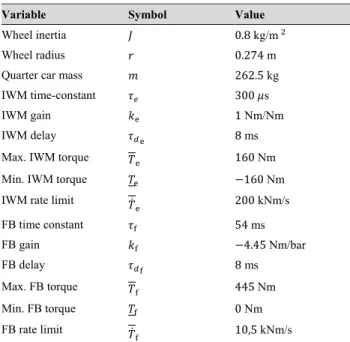A Model Predictive Control Allocation Approach to Hybrid Braking of Electric Vehicles
Full text
Figure




Related documents
In the field of active safety control systems there is plenty of literature too, varying from yaw stability controllers using independent braking of the four wheels based on a
We present a comparative study of model predictive control approaches of two-wheel steering, four-wheel steering, and a combi- nation of two-wheel steering with direct yaw
This paper proposes a model predictive control (MPC) approach to the periodic implementation of the optimal solutions of a class of resource allocation problems in which the
Simulation performance comparison of Modulated Model Predictive Control (MMPC) with optimized overmodulation, standard Finite-Set Model Predictive Control (FS-MPC) and PI controller
At the same time, multiple control objectives are achieved by applying a predefined cost function, the main aim of the torque control is holding the torque close to the
Robust Model Predictive Control Algorithms for Nonlinear Systems: an Input-to-State Stability Approach..
Driving wheels Electronic differential Electric vehicle (EV) Induction machine (IM) Predictive torque control.. Copyright © 2019 Institute of Advanced Engineering
Sedangkan tujuan yang hendak dicapai dari penelitian ini adalah menerapkan Model Predictive Torque Control (MPTC) dengan Robust Stator Flux Observer sebagai pengaturan putaran